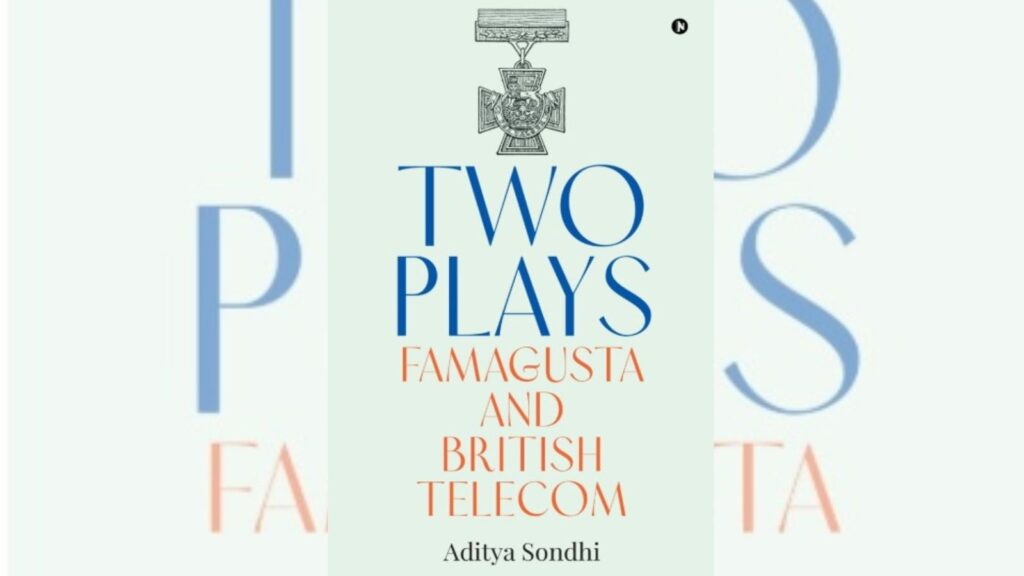Those familiar with Bengaluru-based Senior Advocate Aditya Sondhi’s writing may pigeonhole him as an author with a distinctly academic bent: two of his books dive deep into the alumni of Bishop Cotton Boys’ School, his alma mater, while his latest book, Poles Apart, is a dissection of the nature of democracy and military rule in the Indian subcontinent. But those who know him a little better will be aware of his abiding interest in theatre dating back to his school days. He is also the founder of amateur theatre circle Usher.
Sondhi’s latest volume Two Plays contains his initial forays into the art of writing plays, Famagusta and British Telecom. While the latter has yet to be performed fully, Sondhi’s debut effort, Famagusta, was shortlisted for the Sultan Padamsee Playwrighting Award in 2020.
The two plays could not be more different. Famagusta deals with the legacy of Partition and what it means on both sides of the border, while British Telecom, set in 1987 Bengaluru, features a woman and her nephew who strike up a friendship with a local gay couple. What does link them, however, is a certain organic sensitivity to the dialogue. Even reading through the text of these plays, one can see the conversations are well laid down, rather than just lines to be read by an actor.
Recalling how his interest in theatre took shape, Sondhi, who practises in the Karnataka High Court and the Supreme Court, recalled, “We had a strong tradition of inter-house dramatics (at Bishop Cotton) and we put up some pretty serious and competitive plays. I did act a fair amount. Bengaluru has always had a strong engagement with English theatre. One was never far from watching plays.” One of these school performances that stayed with Sondhi was This Savage Parade, featuring the tale of three judges in Israel who must identify and sentence a captured Nazi.
Of course, writing a play is very different from performing in one, while also being a considerable departure from Sondhi’s existing writing experience. He said, “I found writing plays to be more difficult than any other form. That is because it is essentially conversational and there can hardly be a superfluous word anywhere. Every line attributed to a character must be true to it. Your characterisation and the flow of the storyline of the play have to be crystal clear from the beginning.”
Sondhi’s process included imagining the play being performed – down to what instruction a director might give, what props might be needed, and so on. He added, “Another trick I learned with a play was to actually have your script read. With British Telecom, when the first cut was ready, friends of mine were kind enough to come home and do a reading of the play. I was able to see many gaps in the script where I was able to add more conversation, etc.”
The plays draw inspiration from reality – Famagusta was inspired by the life of Param Vir Chakra awardee Lt Arun Khetarpal, while the Partition was also something that his own father had experienced. Sondhi said, “We actually performed the play in the Partition Museum in Delhi last month. The lieutenant’s brother attended the play and was quite moved by it.”
Story continues below this ad
British Telecom, meanwhile, owed part of its existence to the fact that Sondhi had known an interracial queer couple in the city during the 1980s. He added, “One saw the stigma and the prejudice that the folks had to face. They lived just a few houses from us.”
Sondhi has another play in the works, though that is also shaping up to be a one-act play like the others. He hopes that his fourth one will be longer. Considering the strong start that he has made as a playwright, there is every expectation that these will be something to look forward to for drama enthusiasts.


